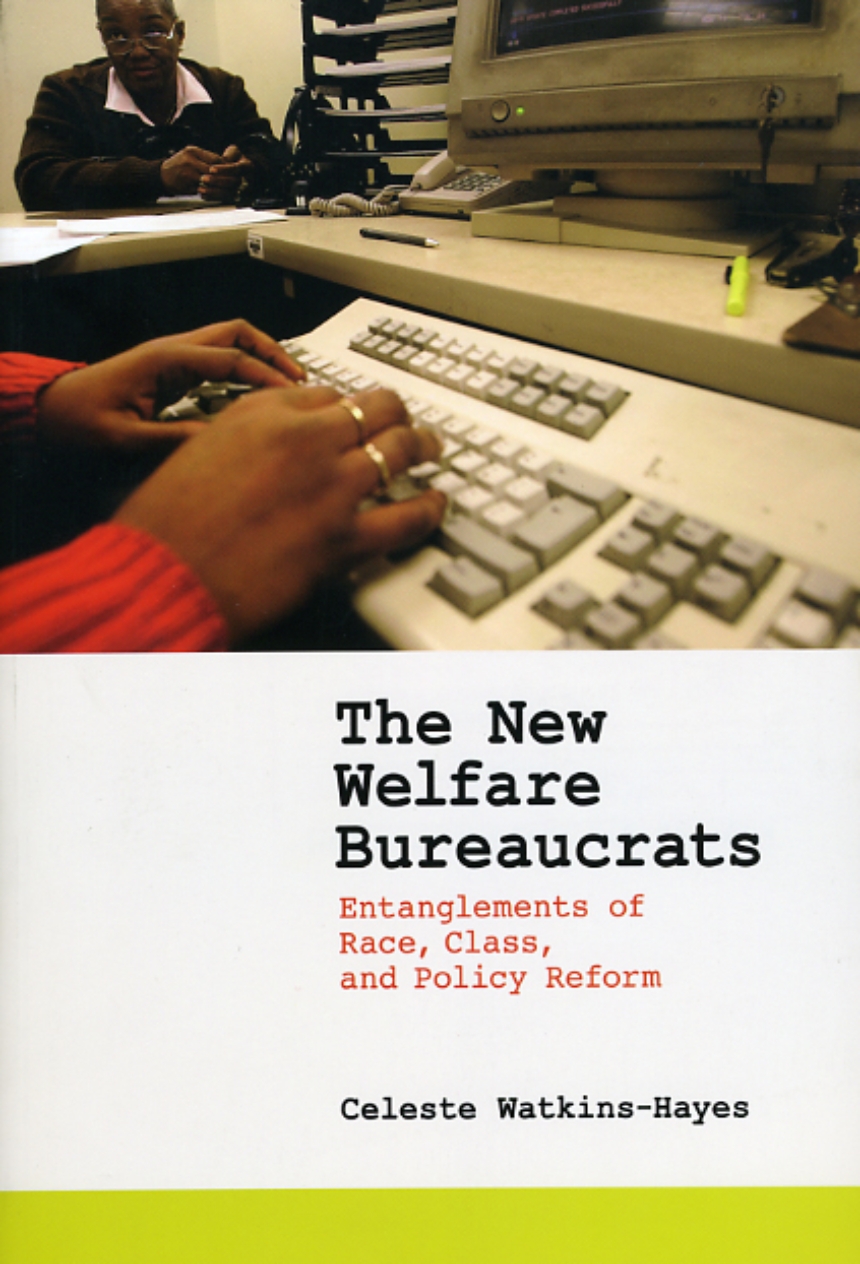The New Welfare Bureaucrats
Entanglements of Race, Class, and Policy Reform
The New Welfare Bureaucrats
Entanglements of Race, Class, and Policy Reform
As the recession worsens, more and more Americans must turn to welfare to make ends meet. Once inside the agency, the newly jobless will face a bureaucracy that has undergone massive change since the advent of welfare reform in 1996. A behind-the-scenes look at bureaucracy’s human face, The New Welfare Bureaucrats is a compelling study of welfare officers and how they navigate the increasingly tangled political and emotional terrain of their jobs.
Celeste Watkins-Hayes here reveals how welfare reform engendered a shift in focus for caseworkers from simply providing monetary aid to the much more complex process of helping recipients find work. Now both more intimately involved in their clients’ lives and wielding greater power over their well-being, welfare officers’ racial, class, and professional identities have become increasingly important factors in their work. Based on the author’s extensive fieldwork in two very different communities in the northeast, The New Welfare Bureaucrats is a boon to anyone looking to understand the impact of the institutional and policy changes wrought by welfare reform as well as the subtle social dynamics that shape the way welfare is meted out at the individual level.
328 pages | 2 tables | 6 x 9 | © 2009
Political Science: Public Policy
Sociology: Individual, State and Society, Occupations, Professions, Work, Social Organization--Stratification, Mobility, Urban and Rural Sociology
Reviews
Table of Contents
Acknowledgments
Introduction: Do Street-Level Bureaucracies Matter in a Post-Welfare Era?
1. Situated Bureaucrats: Locating Identity in Catch-All Bureaucracies
2. Not Everyone Has the Same Bag of Tricks: Identity Discord, Discretionary Toolkits, and Policymaking in a Changing Institution
3. Reinventing the Street-Level Welfare Bureaucrat? The Reformation of Professional Identities in Postreform Welfare Offices
4. Am I My Sister’s Keeper? Race, Class, Gender, and Community in Staunton
5. Race, Place, and Politics: Negotiating Community and Diversity in Fishertown
6. Conclusion: The Crisis of Identity in Catch-All Bureaucracies
Appendix A.Professional Identities in the Making: A History of the Profession of Welfare Casework
Appendix B. Demographic Data
Appendix C. Methodology
Notes
Works Cited
Index